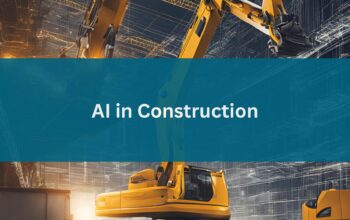Artificial Intelligence (AI) is a huge digital innovation that is creating amazing opportunities for businesses. In short, AI is the process of creating intelligent machines. The machines are ultimately computers, but they are able to carry out tasks that are usually done by people.
The human or intelligent aspect comes in as they are able to recognise speech, to learn and to problem solve. To enable them to take their intelligence to this level they need to have access to a lot of information. To use this information they need to implement knowledge engineering, allowing them to assimilate the information in a meaningful way. With knowledge engineering, computers are able to observe the world around them, understand data that they collect and act independently to put the data to the best use.
Many industries have already started using AI technologies to automate processes such as information capture and data processing. The technology offers a huge step forward in efficiency as computers are able to do the time-consuming day-to-day tasks while people can focus on their skill sets and deal with more complicated issues that aren’t so easily automated. Companies are able to work smarter and more efficiently, harnessing the power of the information and data that they gather and using data as the key driver in decision making. The symbiosis between man and machine forms a big part of the ways businesses are evolving and digitally transforming.
The future potential of AI is quite incredible. It has the means to do so much more than save time and make processes more efficient. With the aforementioned knowledge engineering, it has the capabilities to convert raw data and communications into meaningful and profitable customer relationships. Moving forward AI will be able to make decisions that will improve outcomes for customers and businesses alike.
How AI is forming the future of AEC and Real Estate firms
Data is at the heart of a successful AI strategy and increasingly, AEC and Real Estate firms have begun to adjust the way they collect, store and process data. Industry-wide sharing of big data is leading to increased collaboration between teams and the breaking down of silo structures within organisations. However, data use within the AEC and Real Estate industries remains largely unregulated, requiring a degree of consensus about best practices and necessitating increased investment in and awareness of cyber-security. There is also a growing understanding that as the buildings becomes increasingly embedded with technology, data such as energy consumption and maintenance information can be accessed and perceived directly in the built environment, instead of living in spreadsheets.
How AI Is Changing The Engineering Industry
Technical innovations have the potential to make a huge impact on the engineering profession. Engineering is behind the curve in implementing AI solutions, but they are starting to make a significant impact. The most noticeable change is the one happening across all industries, the automation of tasks. The concern of this automation is the potential to replace the need for professionals within the industry. However, in the near future at least, its impact will be to render certain tasks redundant but to create new ones, thereby replacing tasks rather than entire jobs. This means that engineers can focus their efforts and time much more effectively, albeit with a significant change in their job descriptions.
AI technology offers amazing potential within the engineering industry. It has the power to help companies overcome some of the industries biggest challenges:
- Managing risk – project schedule optimizers are able to assimilate many alternatives for project delivery and ensure that schedules are kept on track. This helps to enhance project planning and boost customer satisfaction.
- Maintaining safety – AI image recognition can classify photo and video data collected on worksites and flag any unsafe behaviors. This data can then be used to inform training and priorities for education.
- Monitoring costs – the analytical power offered by AI allows data to be collected, understood, and for decisions to be made in real time. This allows for costs to be kept as low as possible and should prevent maintenance and unplanned downtime.
- Ensuring quality control – deep learning techniques can compare construction images against existing drawings to ensure quality.
- Retaining talent – AI algorithms allow potential candidate pools to be located and recruiting strategies to be appropriately targeted.
- Optimizing designs – AI can use cluster behaviour to recommend the use of specific designs based on various criteria. This helps architects and clients to make informed decisions early on in the process.
- Gaining competitive edge – by assessing previous project bids, AI algorithms are able to boost engineering firms’ win rates and enhance their margin.
- Building reputation – machine learning can perform sentiment analysis and profile customers based on their characteristics and desires.
The advance of AI across multiple industries has lowered the barrier to entry for the engineering industry. This means that there is more competition and existing firms will need to catch up with AI’s applications and techniques to keep up. The first step is to identify the areas that have the greatest business cases and how AI can impact them in the short term. This will help create impact and gain the backing of stakeholders and employees. Engineering companies need to have the personnel, processes and tools to implement AI technology and a reasonable proportion of investment will be needed.
In the immediate future, the use of AI will be moderate within the industry. There is no doubt, however, that AI will play a more significant role in years to come, and those who adopt early will reap the biggest rewards.



